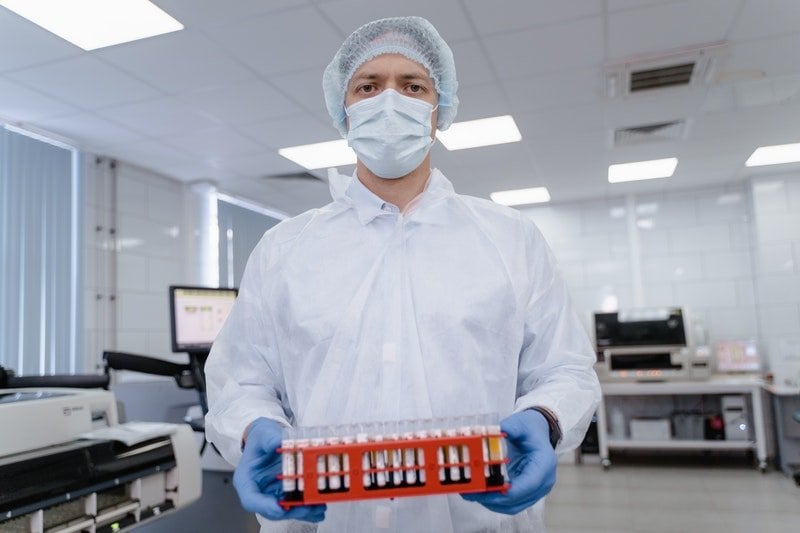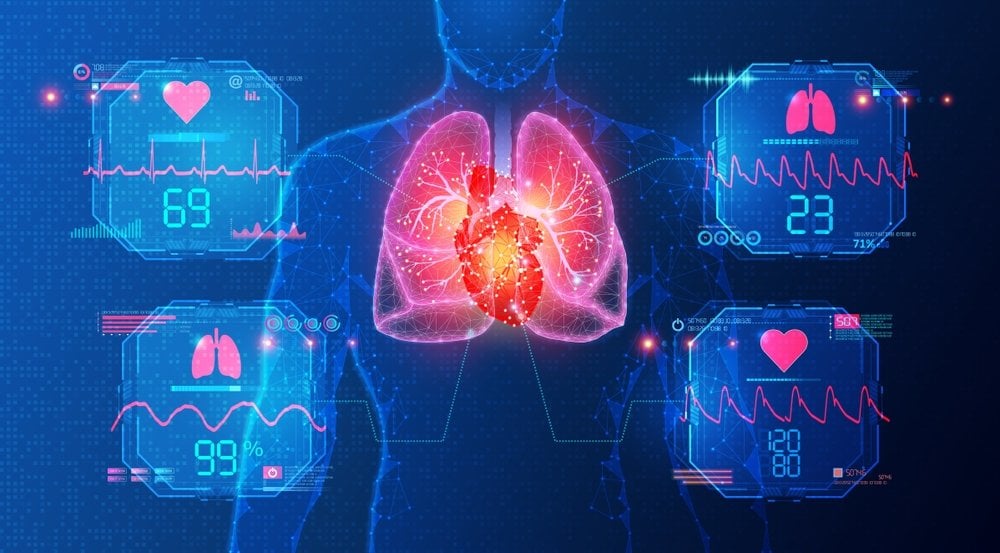Years from now, our current age of genetic testing will be remembered as one of innovation and excitement — as well as a time when a host of misleading claims about genetic tools were targeted at consumers. Unfortunately, that last trend applies to pandemic-related marketing too.
This story begins, like so many other COVID-19 stories, on social media. Early this spring Robert Pyatt was browsing social media channels when he noticed ads popping up for genetic tests that would tell him how susceptible he was to the SARS-CoV-2 virus, or how severe he could expect his case to be if he did get infected. As a genetics expert at Kean University, Pyatt knew enough to be skeptical.

But he didn’t have to just wonder about the value of these tests. Pyatt serves as research coordinator for his university’s genetic counseling program, and helped develop the campus diagnostics laboratory that tests faculty and students for COVID-19. Working closely with two Kean students training to be genetic counselors, Maya Briskin and Esther Choi, Pyatt decided to order these susceptibility tests to see what kinds of results they delivered. He wanted to answer two key questions, he told me later: “What’s the genetic and medical background for these tests? And what kind of information are they really relaying to [customers]?”
At the recent annual meeting of the National Society of Genetic Counselors, Choi presented results from five different tests. They showed conflicting outcomes, depending on which company offered the test. All five tests were run on existing consumer genetic data rather than on new saliva samples — for example, a 23andMe customer could upload their genetic data to these services for analysis.
For this study, the team aimed to make results as comparable as possible by using 23andMe data from the same person — a participant in Harvard’s Personal Genome Project whose genetic data is freely available for research purposes. The same data was uploaded to each direct-to-consumer test provider (GeneInformed, LifeDNA, SelfDecode, Sequencing.com, and Xcode). When all the test results came back, the researchers compared the outcomes and reviewed the scientific basis each company used for its test.

They found what any scientist might expect in a field evolving so rapidly. With no clear consensus in the scientific community about which genetic variants make someone more or less susceptible to COVID-19, or more or less likely to suffer severe disease, the test results were predictably hazy. There have been many published reports of human genetic variants associated with that person’s COVID-19 response — but none of those has been validated in the kinds of large studies needed to translate findings into actionable, consumer-ready information. So it’s no surprise that test companies looked at different subsets of human genome variants, basing results on certain reports and ignoring others.
“Our main takeaway from this study [is] ‘buyer beware,’” says Briskin. “We did see an overlap of certain genes and variants across the tests, but what we’re not seeing is consistency of the results they’re producing.”
To be clear, there’s no indication that any of these services conducted its test badly; it doesn’t seem that the conflicting results were caused by erroneous genetic data or by evaluating the wrong variant. There’s even a disclaimer in each company’s report saying the results are not intended for medical use.
The problem highlighted by the Kean team is that inconclusive scientific findings are being presented to consumers as reliable and meaningful. And, really, won’t people who are told by one of these testing companies that they have a lower risk of getting COVID-19 make some health-related decisions based on that information?
In this study, all five providers offered disease severity tests, covering five to 52 genetic variants (with two providers not revealing how many variants their tests analyzed). In the results, two companies said the genetic data indicated higher risk, two predicted average risk, and one interpreted the data as showing lower risk. Remember, this is all based on the exact same person’s genetic data.
Three providers also ran susceptibility tests, which analyzed as few as two variants and as many as 31 variants to make a call. In this case as well, results were inconsistent depending on which company produced them.
“As genetic counseling students, we’ve been taught to view everything with a critical lens,” says Choi. “It wasn’t particularly surprising to me that the results came back as what they were.”
Also not surprising: these tests aren’t going away. Months after identifying the five testing companies included in this study, Pyatt searched online again and this time found that even more companies were offering tests with similar claims. “This is an area of consumer testing that we’re going to see grow,” he says. “Our fear is that people are being directly advertised to. They’re being sold either inaccurate information or information that hasn’t been scientifically proven.”

















